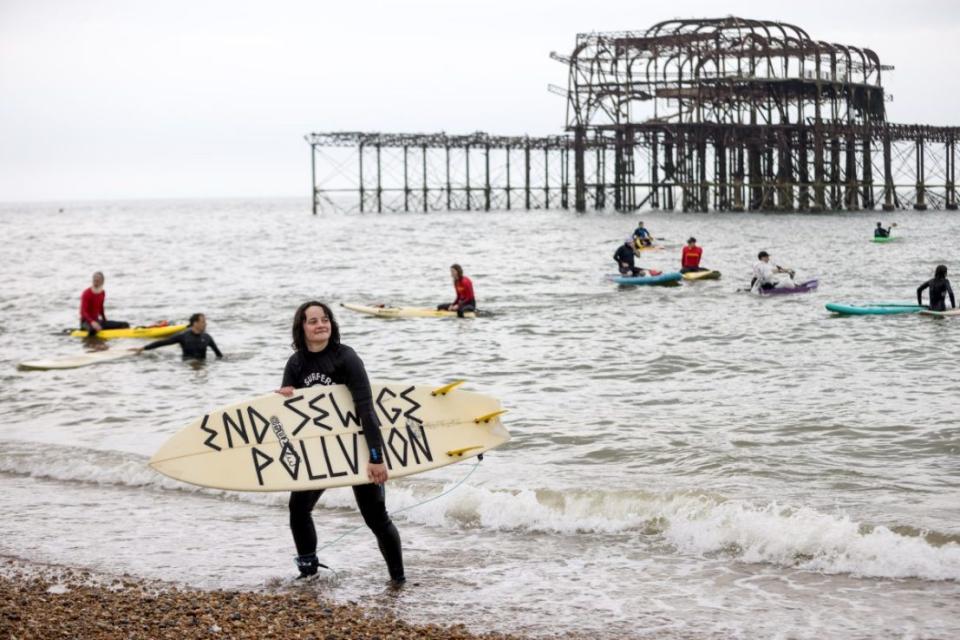Top-rated water firms dumped 1,374 ‘illegal’ spills into UK rivers

Two of the UK’s largest water firms breached their permits by dumping over a thousand raw sewage spills into rivers, even though they had received the highest possible environmental rating from one of the sector’s regulators, fresh analysis has revealed.
Severn Trent and United Utilities oversaw 1,374 raw sewage spills from treatment works across more 80 watercourses over a period of two years, the analysis by Windrush Against Sewage Pollution (Wasp) found, with some spills taking place during dry weather or at times when the plants were only operating at partial capacity.
Water companies are allowed to discharge raw sewage when there has been heavy rainfall, but not when it has been dry.
The Wasp analysis examined potentially illegal spills, matching rainfall records against the firms’ operational data for their sewage treatment works, finding that Severn Trent had made 494 suspected illegal spills of sewage in 2021 and 309 in 2022.
The analysis of United found the firm made 308 suspected illegal spills in 2021 and 263 in 2022.
The spills came despite the firms, which operate in the West Midlands and North West respectively, having recently been two of the three water companies to receive the highest possible rating for their environmental track record from the Environment Agency.
The quango released the ratings for 2023 in July, giving Severn the top rating for the third consecutive year and United its second top rating since 2021, when it started the current system of rating firms.
The findings from Wasp – first published in The Observer – run counter to the fit bill of health given to Southern and United were given by the main regulator, which the two firms have used as grounds for paying out the largest dividends of any of the UK’s water firms.
Since 2020, United and Severn, which are both listed on the London Stock Exchange, have paid out £1.5bn and £1.2bn respectively; more than triple the amount of the firm with the next largest dividend payouts, South West Water on £408m.
A source close to Severn Trent said that in that time it had also raised £1.25bn from shareholders.
Charles Watson, chair of the charity River Action, told City AM: “It’s only through the relentless work of citizen scientists that we now know about the state of our rivers while our regulators have been missing in action. The fact that any dividends and bonuses have been paid by firms complicit in persistent widespread illegal activities is an outrage.”
In response to the claims made in the Wasp analysis, a United Utilities spokeswoman said: “The methodology used in this report is not one that is used by regulators or companies and continues to be based on assumptions rather than actual evidence or measured data.
“We do understand people’s concerns about the operation of storm overflows and we want to see their use reduced significantly too and that is why we have proposed the largest environmental investment in a century right across our region over the next five years.”
A Severn Trent spokeswoman said: “The EPA process is challenging and intensive, requiring performance against a series of measures that get tougher every year. Severn Trent is the only company to have achieved the highest rating five years in a row.
“We’re making real progress to improve river health and an extra £1bn raised by our investors is accelerating delivery, with £450m being invested this year alone to reduce spills.”
The Environment Agency was contacted for comment.